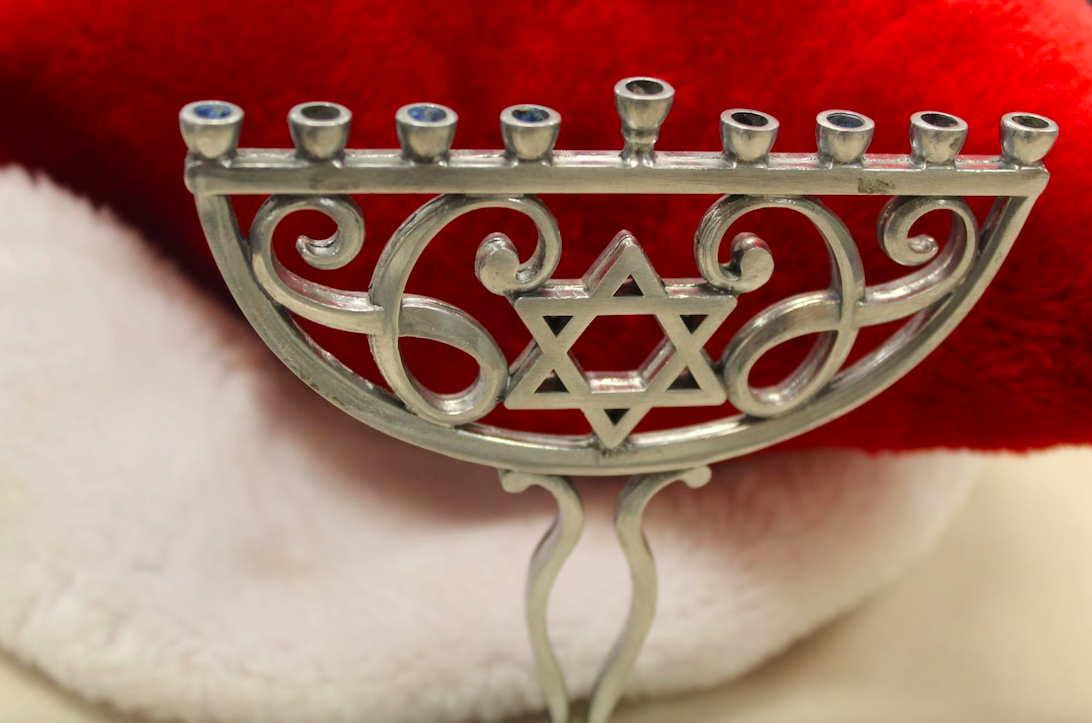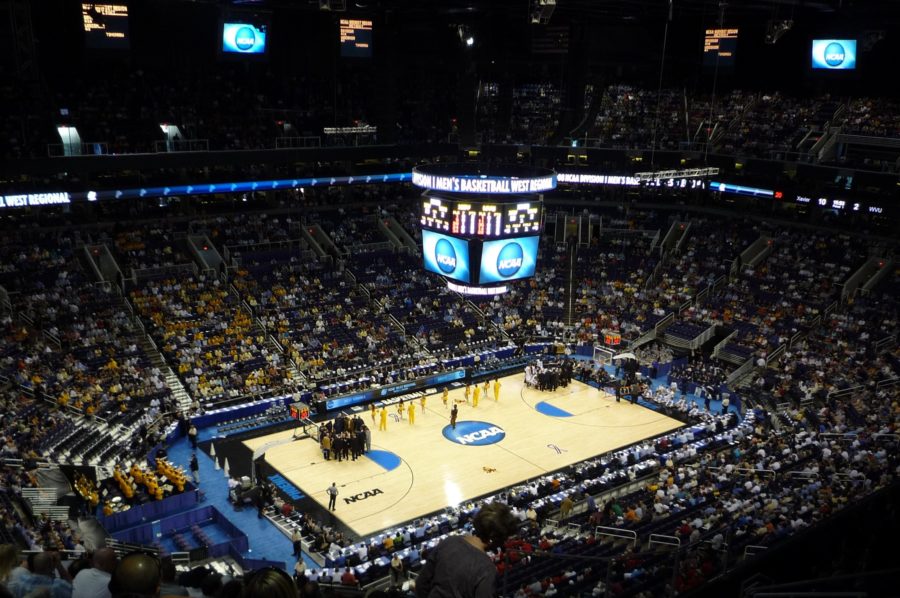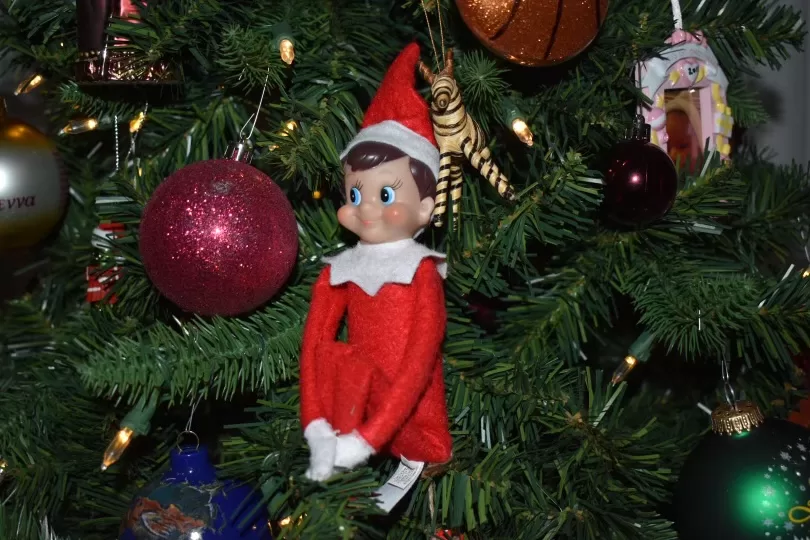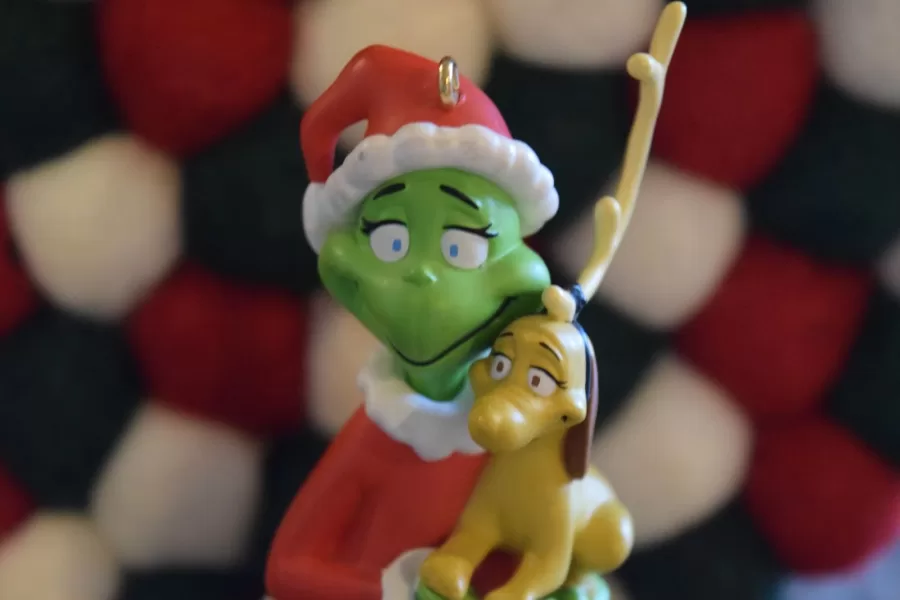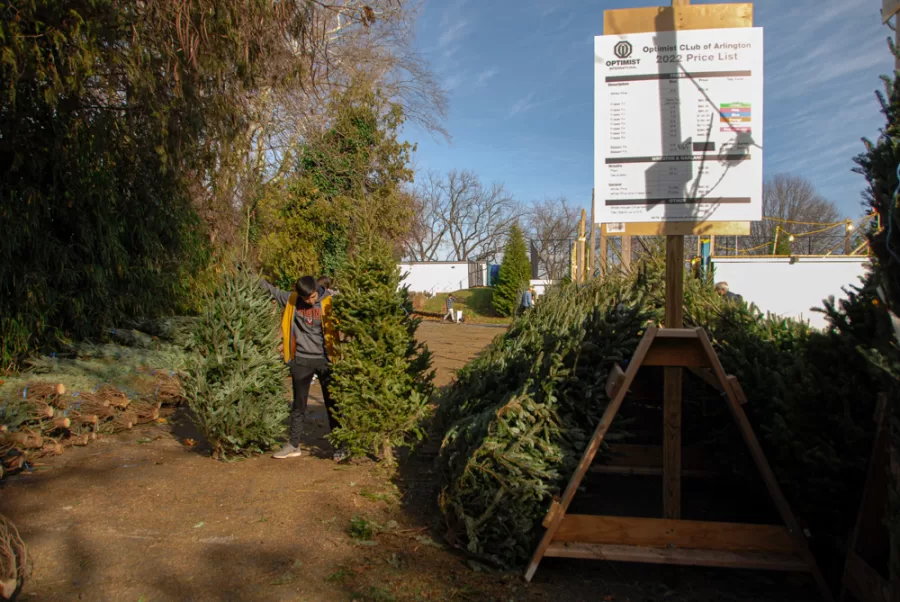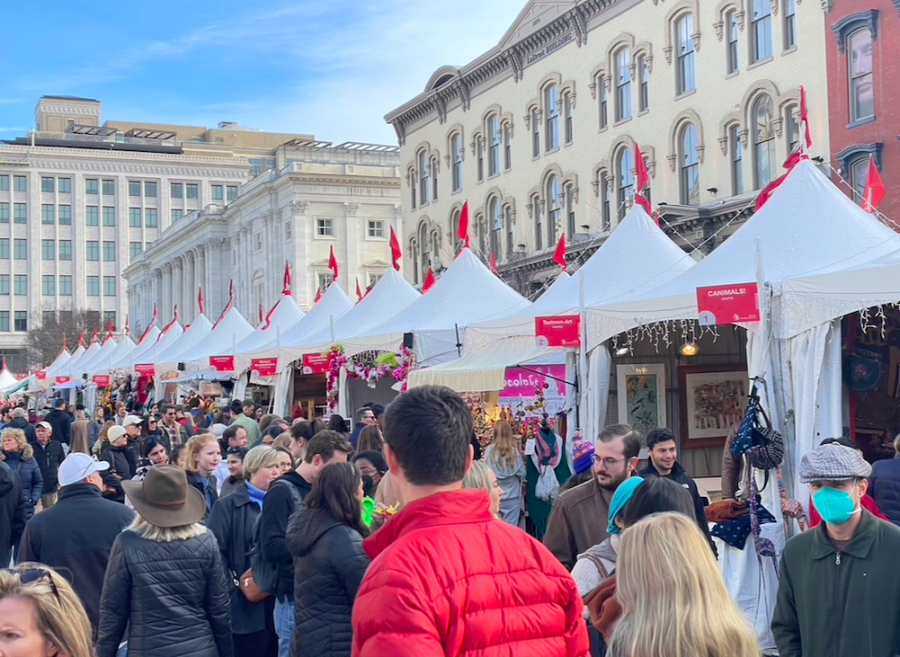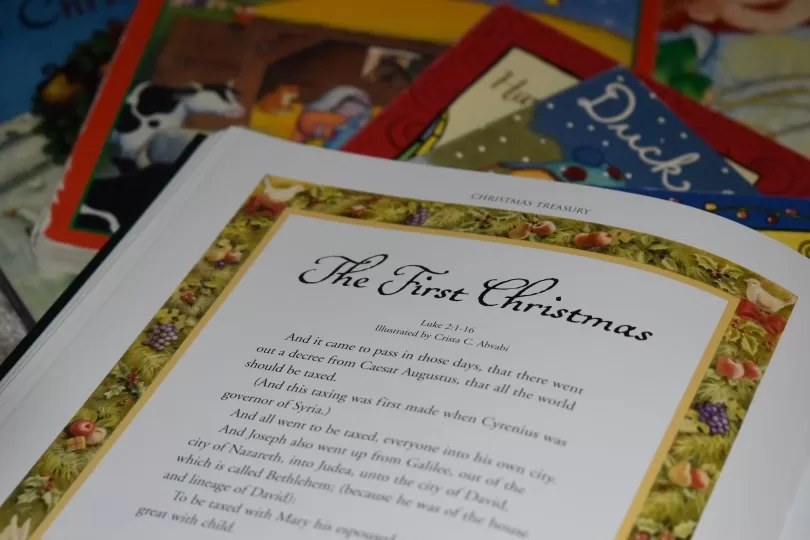This year, Christmas falls on the seventh night of Hanukkah, an eight-day-long Jewish holiday known as the ‘Festival of Lights.’ Hanukkah celebrates the 200 BCE Jewish reclamation of the Holy City Jerusalem from a Greek empire.
While millions of families worldwide are celebrating Christmas, many Jewish families will celebrate Hanukkah by exchanging gifts, eating fried food, playing traditional games and lighting a Menorah: a candelabra with several candles representing each night of the holiday.
For many American Jews, though, these two holidays are intertwined. Not only do Jews have their own non-religious Christmas traditions, but Hanukkah’s celebration has been influenced largely by American Christmas, especially in the exchanging of gifts.
Gift-giving has not always held the importance it does today in either Christmas or Hanukkah. That shifted in the mid-nineteenth century, when members of the American upper-classes introduced the idea as part of an effort to change the values associated with Christmas. By the turn of the 20th century, many retailers began to market Christmas gift-giving more aggressively for commercial purposes.
Many Jewish children felt left out as Christmas transcended religious celebration to become an American cultural tradition. Jewish parents sought appeasement through the nearest holiday: Hanukkah. At the time, the festival of lights was widely seen as unimportant because it celebrated a historical story rather than a biblical one. In the 1880s, Hanukkah was celebrated with decreasing frequency in America. However, as pressure fell on parents to buy their children gifts for the holiday, Hanukkah’s popularity skyrocketed.
However, no individual modern story encapsulates that pressure quite like the creation of the ‘Mensch On a Bench’ toy. The Mensch on a Bench was made after many Jewish children felt excluded from the Christmas themed ‘Elf on a Shelf’ toy, which is placed around many households during the holiday season. Parents often tell their younger children that the elf reports to Santa Claus whether they deserve presents or not. Even though Jews have no such fables, the toy was a hit among Jewish families (even if many parents bought it in jest). This toy isn’t the only Jewish parody of Christmas traditions.
The most famous of these, dating back to the mid-1800s, is the ‘Hanukkah bush’. Many historical accounts suggest that the bush, which is a play on the traditional Christmas tree, was originally an attempt at assimilation into American Christian culture. While some families do buy Hanukkah bushes adorned with symbols important to Judaism, the bush is typically treated as an inside joke amongst Jews. Today, the bush is seen as a joke that both pokes fun at the secular nature of a Christmas tree and the Christian-normative culture entwined with the American holiday season.
On Christmas day itself, American Jews have another set of traditions: going to the movie theater and eating takeout Chinese food. Both of these customs hold their origins in New York City’s Lower East Side neighborhood. Since most local shops run by European immigrants were closed on Christmas Day, early twentieth-century Jewish immigrants found food in neighboring Chinatown. Many Chinese immigrants held looser religious ties prior to the 1950s and did not close their shops for Christmas. Movies were also common amongst Jews, many of whom worked in sweatshops. In the early 1900s, movies were a cheap way to spend free time, and because Jewish workers had the day off, many films in Yiddish debuted to large crowds on Christmas day. Both of these traditions have become nationwide clichés over the last century.
Christianity and Christmas have many customs which dominate American culture in December. As a result, non-Christian people of all faiths have formed their own practices around the holiday. Many Jewish people choose to celebrate their own traditions as a way of embracing their community when they feel excluded from Christian-American traditions.





































